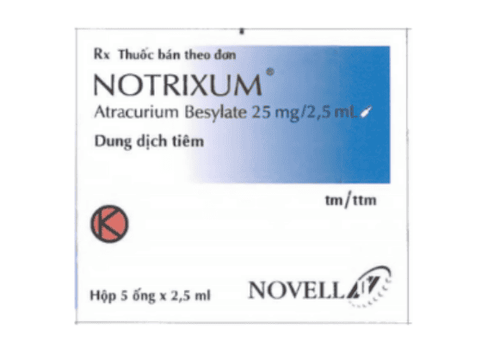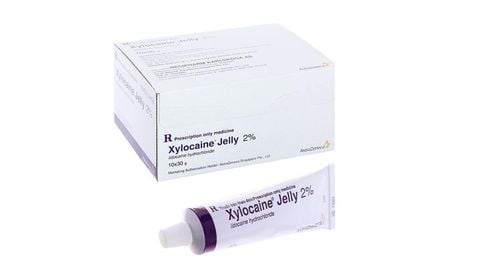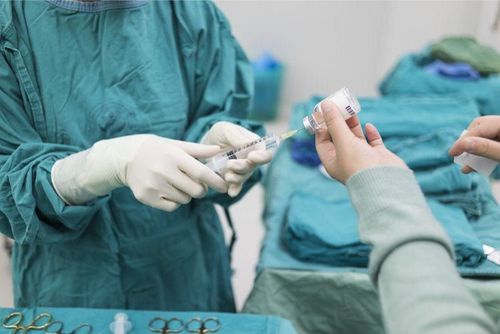This is an automatically translated article.
The article was written by Specialist Doctor I Dong Xuan Ha - Digestive Endoscopy Doctor, Department of Medical Examination and Internal Medicine - Vinmec Ha Long International HospitalEndoscopy anesthesia is that the patient is anesthetized during the procedure, usually using intravenous anesthesia. The doctor will inject the patient with a mild anesthetic to put the patient to "sleep" and then start performing the endoscopic technique.
1. What is gastrointestinal endoscopy using anesthesia?
In some special cases, patients will be intubated during anesthesia to avoid reflux of gastric juice into the respiratory tract or better control respiratory function in cases of underlying diseases such as cardiovascular disease, old breathing....
The patient will lie still during the endoscopy without feeling any pain or discomfort. At the end of endoscopy, about 5 minutes, the patient can fully wake up and eat and drink as usual.
This method also reduces a lot of unnecessary complications because the initiative will belong to the doctor, not related to the patient's muscle contractions and struggles.
But the greatest benefit of endoscopy under anesthesia is when the patient is lying still.

2. Steps to perform gastrointestinal endoscopy using anesthetics
The doctor will examine the patient meticulously, carefully, weigh the benefits and risks and then give the indication for gastrointestinal endoscopy under anesthesia.
After gastrointestinal endoscopy is indicated under anesthesia, the anesthesiologist will give a pre-anaesthetic examination to the patient. Depending on each specific case, the patient may have to do additional tests such as liver and kidney function measurement, electrocardiogram, chest X-ray or respiratory function measurement..
Based on the information obtained The anesthesiologist will explain to the patient the benefits and possible complications of endoscopic anesthesia, after agreeing with the patient or family, the anesthesiologist will recommend the method of anesthesia. most suitable for the patient.
After completing the preparations such as ensuring the time interval between eating and drinking to the time of anesthesia, cleaning the colon.. lying in the correct position, preparing equipment and tools.. the procedure to cause anesthesia. anesthesia will begin prior to the endoscopy.
The patient will be fitted with devices to monitor vital, cardiac, pulse, respiratory functions.. establish an intravenous line, intubate if necessary.. the patient will be injected with pre-anesthesia and induce anesthesia.
The anesthesiologist who will monitor until the patient is fully anesthetized will notify the Endoscopist to start the procedure.
During endoscopy, the patient is maintained under anesthesia with drugs delivered through an electric syringe. Depending on the stage of the procedure, the drug will be adjusted accordingly until the procedure is completed safely.
At the end of the procedure, the patient is continued to be monitored in the recovery room until he is fully awake. The anesthesiologist will reiterate the side effects and make sure the patient can understand and follow the instructions given to them (Example: Do not operate machinery, drive vehicles for 24 hours. hour).
Then the patient is handed over to the endoscopist to monitor and take care of the problems of gastrointestinal endoscopy.

3. Side effects when using anesthetics during endoscopy
There are very few serious unintended consequences if the patient is carefully and professionally examined and performed by an experienced Anesthesiologist.
Some common side effects are dizziness, nausea, feeling like motion sickness after anesthesia, but it will go away quickly because the anesthetics used in gastrointestinal endoscopy are often effective drugs. rapid, short administration and rapid elimination.
In some cases where the patient's liver and kidney function is reduced but still requires endoscopy under anesthesia, these side effects can last longer.
Vinmec International General Hospital is one of the hospitals that not only ensures professional quality with a team of doctors, modern equipment and technology, but also stands out for its examination, consulting and service services. comprehensive and professional medical treatment; civilized, polite, safe and sterile medical examination and treatment space. Customers when choosing to perform tests here can be completely assured of the accuracy of test results.
Please dial HOTLINE for more information or register for an appointment HERE. Download MyVinmec app to make appointments faster and to manage your bookings easily.














